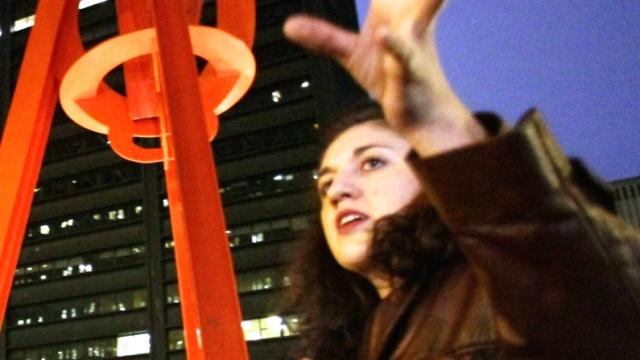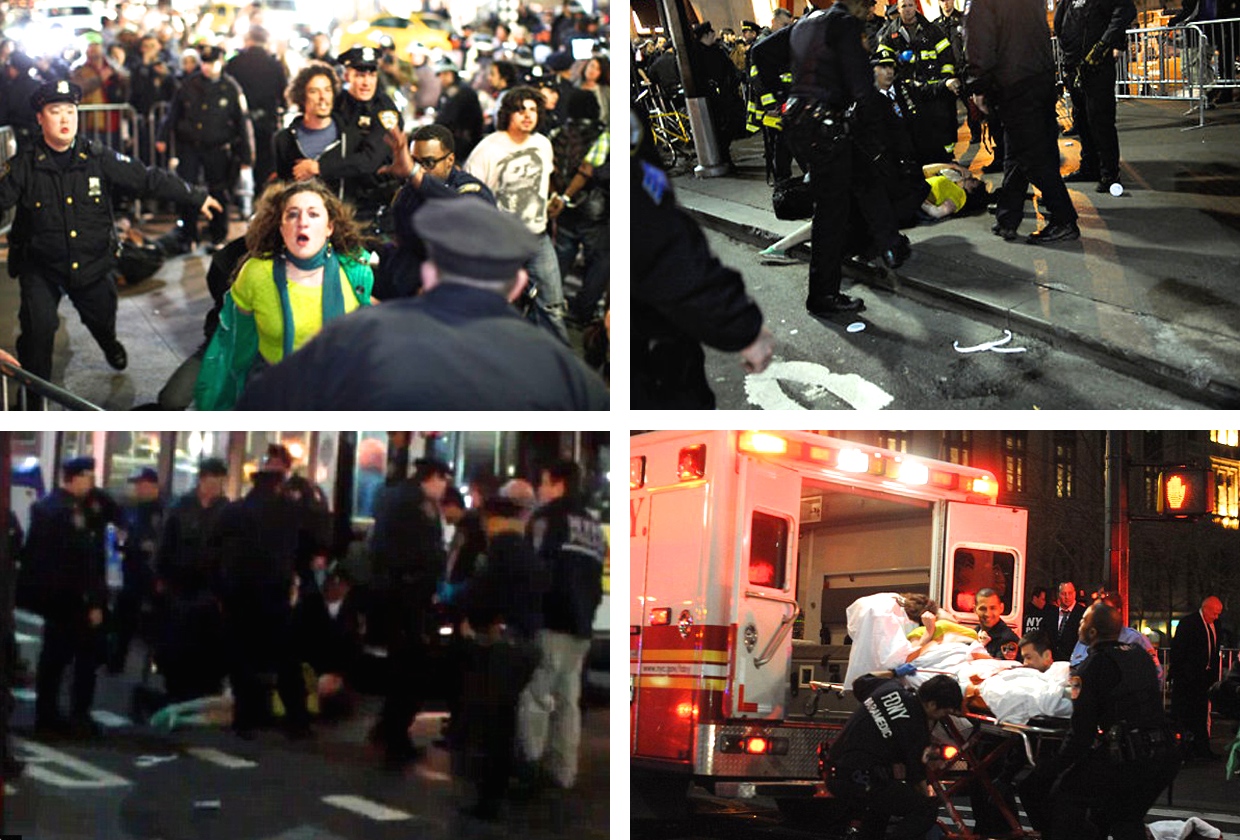
It is the most important question being asked of dozens of New Yorkers lined up as potential jurors for the trial of Cecily McMillan, an Occupy Wall Street activist accused of assaulting a police officer: what do you think of her protest movement?
Unfortunately for those keen on the swift procession of justice, a series of Manhattan residents who presented themselves at the criminal courthouse this week declared that they strongly disagreed with it – and could not promise to be impartial about one of its members.
“I’m involved in Wall Street things. I’m on the Wall Street side, not their side,” George Yih, one of a group of prospective jurors whose names were plucked from a tombola by the clerk, said under questioning from Judge Ronald Zweibel on Wednesday. “They can protest all they want, but they can’t brainwash my mind.”
Yih was removed from a shortlist for the panel that will decide if McMillan, 25, assaulted Officer Grantley Bovell by striking him with her arm at Zuccotti Park in March 2012. McMillan denies the felony charge and says that she was reacting to having one of her breasts grabbed from behind. She faces up to seven years in prison if convicted.
But Yih’s remarks were only the first in a succession of criticisms against the anti-capitalist movement made throughout the day by other would-be jurors. Each said that he or she had ties to a finance industry that holds about one in nine jobs in New York City and pays more than a third of the total wages earned annually in Manhattan.
And as one after the other was rejected – either by McMillan’s attorneys, state prosecutors, or the judge – a jury selection process that the defense had hoped would be completed in one day reached the end of a second with only seven of the 12 jurors’ seats filled.
“For 20 years, my occupation has been, in some fashion, on Wall Street,” said Jason McLean, who said he was an equity trader living in Murray Hill with his wife, who was also an equity trader. “Everything I believe – my morals – are kind of the antithesis of what they represent.” He concluded: “I don’t know that I could be completely objective.”
“I like to think of myself as fair,” Alan Moore, who said his wife worked on Wall Street as a bond strategist for Credit Suisse, told the judge. “But in terms of Occupy Wall Street in general, I would give less credibility to that group than average.”
Even to a witness in court? “Yeah,” said Moore. “They seem to be people moving a little outside regular social norms and regular behaviour. Therefore I don’t give them the same level of respect as people who follow the line.”
Requests by McMillan’s attorneys to exclude both McLean and Moore from the jury were granted by the judge, despite being challenged by Erin Choi and Shanda Strain, the assistant district attorneys representing New York.
Even they, however, conceded that Mary Malone – an Upper East Side resident who previously worked for a bond fund and said: “I have really strong feelings about Occupy Wall Street and the people involved” – and Peter Kaled, a corporate finance worker from the Upper West Side who said that one of his friends had policed Zuccotti Park at the height of the protests, should not make the cut.
However, as they prepared to bring a case that will also test the credibility of officers whose conduct while arresting dozens of protesters on that March evening two years ago attracted sharp criticism from civil liberties groups, the pair of state prosecutors had their own reasons for rejecting prospective jurors.
They had an African American man excluded after he said that a grievance relating to a past run-in with the NYPD could affect his view of the officers expected to testify against McMillan. Patrick Grigsby, an Upper West Side actuary, was similarly banished after expressing mistrust of Bovell when informed that the cop was disciplined by bosses for having five parking and speeding tickets fixed as part of the so-called “Bronx ticketing scandal” of 2011.
McMillan’s lawyers said after the trial was adjourned until Friday that they remained confident the court would “find people that fit the profile” of impartial peers. “We’ve seen people saying they can’t be fair on Occupy, and we’ve seen people who say they can’t be fair on the cops,” Martin Stolar, her lead attorney, said outside court. “A surprising number of people are actually willing to say that they can’t be fair,” said Rebecca Heinegg, his co-counsel.
A fresh air of optimism had blown into the 11th-floor courtroom with the day’s final pool of 60 potential jurors an hour earlier. Yet when Zweibel asked if any of them thought that they could not be “fair and impartial” in considering the trial at hand, a young woman in the second row instantly threw up an arm and was summoned to a sidebar meeting with the judge and attorneys. “I worked at Deutsche Bank,” she could be heard whispering, before being excused.
3 WAYS TO SHOW YOUR SUPPORT
- Log in to post comments












